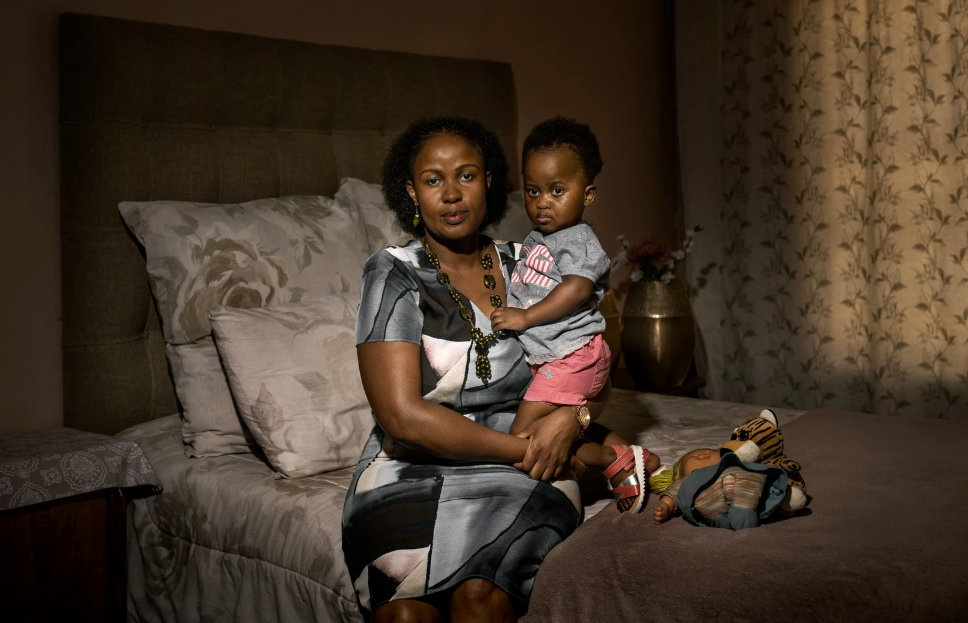Almost ten years ago, Theto Ngobeni’s mother, Montlha, was pregnant and craving Mielie Kip chicken polony. Little did she know that eating it would infect her daughter with listeriosis before she was even born. Theto, now seven years old, has since suffered extensive neurological damage, including hydrocephalus, requiring multiple brain surgeries. She struggles with developmental delays and will probably not reach the same milestones as her peers.
“The life that we are living now is not the life we wanted our kids to live,” Montlha said, speaking at a press conference last September in Johannesburg. But even then, she wouldn’t wish such struggles on her worst enemy: “Not even Tiger Brands.”
Tiger Brands, the food and beverage company believed to be responsible for South Africa’s deadliest listeriosis outbreak in history, is now finally looking at settlements in the long-running class action lawsuit.
Back in 2017, the world’s deadliest outbreak of the bacteria shook the nation. More than 1,000 people were affected, and over 200 lost their lives. Many of them were children. It was traced back to Tiger Brands’ Enterprise Foods Polokwane facility, which has since shut its doors. Since then, accusations have been made, legal battles have begun, and the company has avoided paying out compensation before this year.
This week’s news that Tiger Brands has offered a potential settlement has changed everything. We’re here to break it down for you.
From 2017 to 2018, South Africa experienced the world’s largest listeriosis outbreak
The outbreak lasted around a year, with 1,060 laboratory-confirmed cases reported from 1 January 2017 to 17 July 2018. Of the laboratory-confirmed cases of listeriosis reported by South Africa’s National Institute for Communicable Diseases (NICD), 216 deaths were recorded.
Before 2017, an average of 60 to 80 laboratory-confirmed listeriosis cases per year, equally around one per week, were reported in the country. In July 2017, an increase in laboratory-confirmed cases of listeriosis was reported to the NICD, which triggered further investigation. On 05 December 2017, the listeriosis outbreak was declared by the Minister of Health, Dr Aaron Motsoaledi.
Listeriosis is serious. It’s an infectious disease of the blood or the brain caused by listeria bacteria. It mainly occurs in the elderly and people with poor immune systems, for example, because of cancer, HIV or treatment with drugs that suppress the immune system. Pregnant women and their unborn babies, like Montlha and Theto, are also at higher risk of getting listeriosis. This deadly bacterium was discovered in Tiger Brands’ contaminated polony product.
For a company that is over 100 years old and has grown to be one of Africa’s most prominent food producers, the effects of such a mishap were resounding. Tiger Brands manufactures products like Koo, All Gold, Jungle Oats, Purity, Black Cat and Beacon – all South African favourites.
During the outbreak, 465 cases were associated with pregnancy, and 406 of the pregnancy-associated cases occurred in newborns, according to a 2020 academic investigation into the outbreak.
By 2018, the Department of Health declared the listeriosis outbreak was over, but the damage had been done.
The legal battle that ensued
Soon after the outbreak, the legal battle began. In December 2018, class action attorneys formally began legal proceedings. They represented over a thousand of those who were affected by the outbreak, including those who lost family members and any more who may still choose to come forward. Seven years later, the class action attorney, Richard Spoor Incorporated (RSI) Attorneys and LHL Attorneys are still fighting. Tiger Brands used multiple legal delaying tactics and initially refused to agree that the strains of listeriosis could be traced to their facilities or products.
In early 2024, major breakthrough evidence came to light thanks to an investigation by the NICD. Researchers tested over 300 people and found they had contracted a particular strain of Listeriosis – ST6 – that could be linked to Tiger Brands’ Polokwane facility with certainty. The testing they used creates a genetic fingerprint, so to speak, of the particular virus strain and is known as core genome multilocus sequence typing (cgMLST).
They discovered that samples taken from different sources were nearly identical, with only tiny genetic differences. This showed, beyond doubt, that the infections of the 300+ people tested were all connected and traced back to Tiger Brands’ factory in Polokwane.
Dr Peter Gerner-Smidt, an international microbiological expert on outbreaks of food-related diseases who has been closely involved in the case, said in an interview made available by the class action attorneys: “The investigation of the South African outbreak was done using the best methods available”.
Yet despite this new proof and continued attempts by lawyers to obtain compensation for victims, Tiger Brands refused to pay.
In September 2024, the class action lawyers launched a campaign under the hashtag #TigerBrandsMustPay. After massive media interest and civil society pressure, the company decided to offer “interim relief” to just a few of the most desperate cases in February 2025.
But still, there was very little movement on a larger settlement. Until Monday.
Tiger Brands has finally made an “effective admission of liability”
On Monday morning, Tiger Brands made a surprise announcement in a public notice to their shareholders, where they said they had agreed, in a very limited way, to start the process of settling. This happened as the class action lawyers were preparing to go to court. The settlement offer had been sent to the class action lawyers a few weeks prior, on 25 April 2025.
Tiger Brands has said they will only settle with some 300 of the 1000+ victims who happened to be tested by the NICD and found to have the ST6 strain. However, the NICD could not test everyone, and several of those who happened to be tested ate the same products as those who were not tested, making the distinction arbitrary. Nor has the company committed to any amount publicly. The statement notes: “In order to protect the privacy of the individuals participating in the settlement offer no details of the offer and/or payments will be made public.”
The company was also careful to note that this was not an admission of liability, but the class action lawyers responded in a press statement welcoming the news and calling it an “effective admission of liability”.
What happens next?
The proposed settlement includes full compensation for proven damages. However, it’s not yet a done deal.
The final settlement structure on how people will be paid, how claims will be assessed, and how victims will be categorised still needs to be worked out. Once this is done, the High Court will review the proposal to ensure it’s fair to everyone involved. Only then can the compensation process begin.
The final step of the settlement process is now in the hands of the High Court.
Meanwhile, the court action is continuing on behalf of all the victims, parallel to this settlement process.
As Tiger Brands’ statement puts it: “The class action, which is being managed in two stages, is still at the first stage during which liability is to be determined by the Court. Only if Tiger Brands is found to be liable will the issue of causation arise, in the second stage of the class action, as well as an assessment of compensation payable to qualifying claimants for damages suffered.”
If you find that’s a little confusing, it’s probably intended. Tiger Brands has long used legalese and delaying tactics to evade accountability, and while this offer of settlement is a huge deal as it’s their first effective admission of liability, it’s definitely not for everyone affected by the outbreak – and that’s a problem.
Disclaimer: Please note that explain.co.za’s sister agency company, Explain the Agency, has done PR work for the class action attorneys involved in this matter.
Lona is a recent graduate with an Honours degree in Journalism and Media Studies from Wits University. Passionate about storytelling, she is eager to learn, grow, and hone her writing skills.




